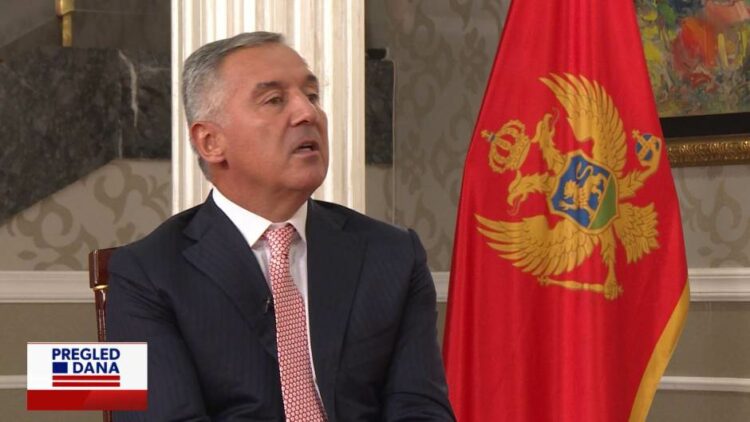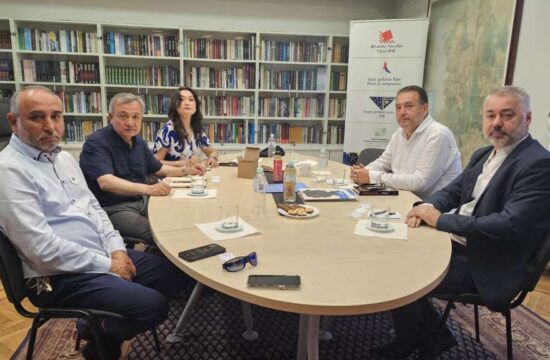
Milo Djukanovic, Montenegro's President, whose Democratic Party of Socialists (DPS) lost the Sunday's election, conceded the defeat, telling Newsmax Adria on Tuesday that in his country and the Balkans two principles were established – pro-Western and the regressive and nationalist one which "has now aroused."
He said that the first principle, which was personalised in Montenegro's former authorities, as well as more or less the others in the region, saw the future in the European system of values and the European and Euro-Atlantic integration.
“Contrary to that, as we can see, the nationalism from the 1990s is still very much spirited, awakened by new incentives, attempting to turn the wheel of history backwards,” Djukanovic, whose presidential term expires in three years, has told Newsmax Media in the first interview after his party lost power.
Djukanovic accused his Serbia's counterpart Aleksandar Vucic and his politics “of showing very problematic intentions” towards Montenegro, adding that from the adoption of the Law on Religious Freedom, there was a strong media and political aggression from Belgrade “from everyone, more or less from all media and all official actors in Serbia.”
He added that Belgrade perceived “the tacit support of international actors as an opportunity to revive the policy of Greater Serbia in the region, and finally resolve the Serb issue in the region.”
Djukanovic admitted it was possible that his party lost support “due to people's unhappiness with some politics,” but also because of the manipulations concerning the Law by SPC and Belgrade, “which (Belgrade) has started and has been conducting since last December.”
“President Vucic and Serbia's current politics showed intentions to interfere in the internal political life of other states and trying to revive the Greater Serbia nationalist politics in the region. Both are extremely wrong and very dangerous,” Djukanovic said.
“Belgrade's official policy, and even the blind could see that, was to try to create an atmosphere in which Montenegro would become a part of the Serb world in the Belgrade – Banja Luka (the administrative centre of the Serb-majority entity in Bosnia and Herzegovina) – Podgorica triangle,” he added.
Djukanovic defended the disputed Law on Religious Freedom passed last December, saying it was not a mistake.
“One should not overlook the legitimate intention of the Montenegrin religious and political wish of the public that after the restoration of the statehood also restore those values which are Montenegrin society's tradition, ” he said.
However, some analysts agree the Law became the main topic in the election campaign after the Serbian Orthodox Church (SPC) had launched mass protests against it, claiming the state would take away its properties in Montenegro.
Many observers say the Law was Djukanovic's and DPS’ own goal.
DPS and Djukanovic had ruled Montenegro for three decades. After the Sunday's defeat, he said he was not surprised with the following incidents or with “uncivilised moments” during the celebrations by the former opposition.
“Those incidents surprised no one, the celebrations even less. There are always reasons to celebrate, but that means a civilised behaviour toward other people and the need to preserve the stability of Montenegro. Last night, we witnessed an outburst of intolerance, primitivism, an attempt of a showdown with people who think differently,” Djukanovic said, adding he believed that was not possible.
Speaking about country's new government, he said there were different speculations about whether it would be an expert or political cabinet, adding the opposition coalition parties’ programmes differed substantially, and that one should wait to see how that would unfold.
“The only thing they have in common is to topple DPS,” he added.
He said he would offer a mandate for creating a new government to those who secured 41 seats in the Parliament.




